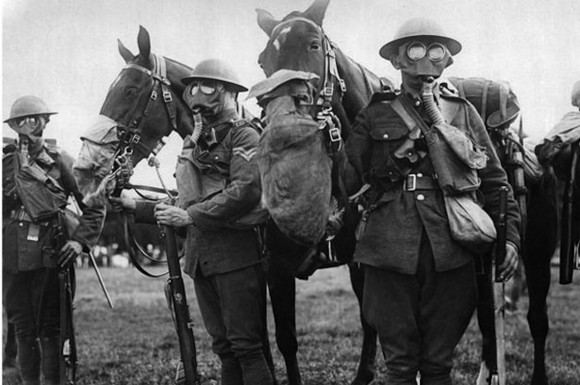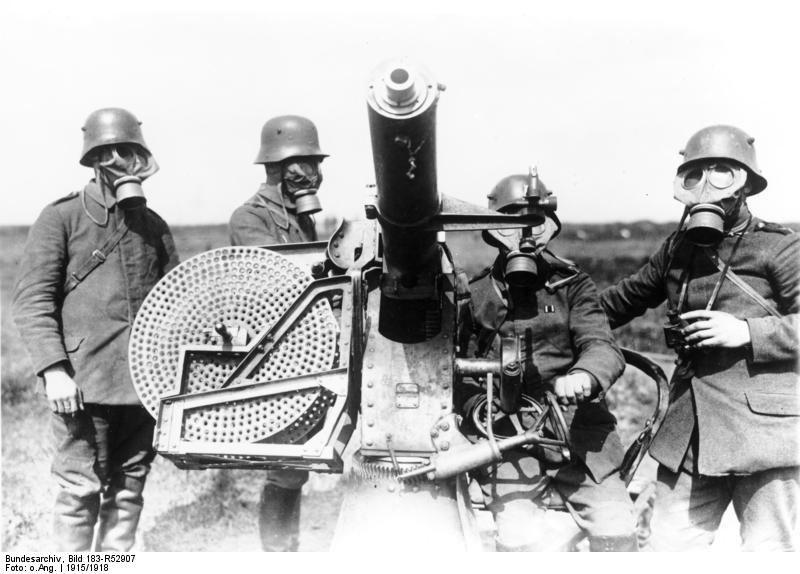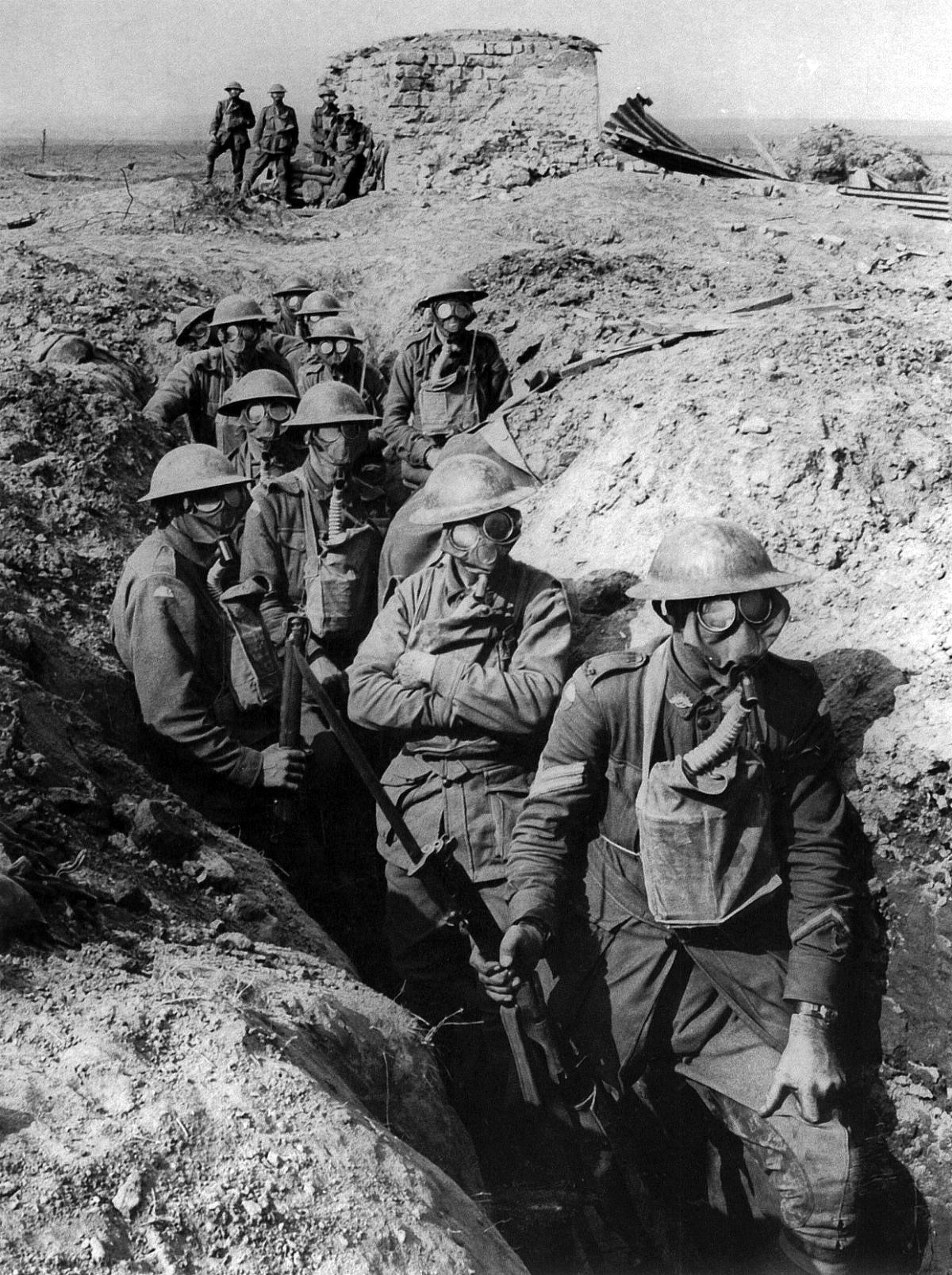In Stimmen aus den Schützengräben #12 we deal again (see episode #5) with chemical warfare. The first document is a passage of the memories of Italian military chaplain Feliciano Marini. The events took place at the outbreak of the Battle of Caporetto (12th Battle of Isonzo), the greatest defeat ever suffered by the Italian Army.
The battle began on the 24th of October 1917 at 2 am, with a massive use of chlorine and phosgene gas. The infantry followed a few hours later. Italians headquarters were expecting an assault but failed to organise the defense. The frontline collapsed, Italian troops fled without any assistance from the high command, entire divisions were surrounded and taken prisoner. The retreat only stopped on the 11th of November, when the last units reached the new defence line on river Piave. In less than 3 weeks the Central Powers moved the frontline 150 km to the west. They also captured more than 250.000 men, over 2000 cannons and a huge amount of equipments and supplies. Armando Diaz took the place of Luigi Cadorna as commander-in-chief, and the goverment had to resign.
The defeat of Caporetto struck so deep, that even nowadays “Caporetto” is used in Italian language as a synonym for a military desaster.

Gas played a major role in the success of the operation. Most of the soldiers didn’t trust their masks and fled, thus leaving the trenches unmanned. Some of them, however, were surprised by the gas and couldn’t react. In a journal entry Chaplain Feliciano Marini reports how the gassed soldiers arrived at the field hospital where he was working. Many of the gases used in WWI didn’t work instantly (see episode #5), and the soldiers didn’t realise how badly they were poisoned until it was to late. Marini writes: “at first glance their conditions dont’t look serious at all. But shortly after the symptoms appear, and some of them almost died before I could give them the Sacraments”. Gassed soldiers were seized by panic when their brothers-in-arms suddenly started dying, and it was very hard to maintain order. The bad news from the front made it even worse. Feliciano Marini served as a a military chaplain and stood on the frontline from May 1915 until February 1918. The transcription of his memories, published with the title “Ricordi di un cappellano militare”, is available at: http://www.cimeetrincee.it/marini.htm.

The second document of the week is a letter from German soldier Johann Görtemaker (see episode #5), written on the 23th of May 1917. In a passage he mentions a British night attack with gasses, telling how hard it was to see while wearing the mask. Turning on the lights was strictly forbidden, which didn’t help. The full letter, together with many others, is available at: http://www.europeana1914-1918.eu/de/contributions/462.

The last document is a letter from French soldier Jean Fauchet, from the 17th of February 1917. A few days before writing the letter Fauchet was victim of a German gas attack and was affected by the poison despite wearing a mask. After a few hours he fell like dead, and some soldiers brought him to a dressign station where they gave him drugs to induce vomit. Three days later he was still very weak and could only drink some milk, but he managed to write his family to inform them of his condition: “Now I feel better, but believe me, I suffered! I’d rather take a bullet straight in the head than die poisoned.” The full letter, together with many others, is available at: http://forezhistoire.free.fr/jean-fauchet.html.
-Credits-
Editing: Carla Steinitzer , Matteo Coletta.
Voices in this episode: Hannes Hochwasser als Johann Görtemaker, Matteo Coletta as Feliciano Marini and Jean Fauchet
Jingle:
Music: Gregoire Lourme, “Fire arrows and shields”
Concept: Matteo Coletta
Voices: Hannes Hochwasser, Matteo Coletta, Roman Reischl, L.J. Ounsworth, Norbert K. Hund.
